Medically reviewed by Dr. Ramesh Gaddam, M.D. — Written by Sumalatha, D.N.H.E
Table of Contents
ToggleDehydrated vegetables are vegetables that have had the majority of their moisture removed through a drying process, typically either through air drying, sun drying, or using specialized dehydrating equipment such as food dehydrators. Dehydration helps to preserve the vegetables by removing water, which inhibits the growth of microorganisms that cause spoilage.
Health Benefits
Dehydrated vegetables retain many of the nutritional benefits of fresh vegetables, making them a convenient and nutritious option. Here are some health benefits of consuming dehydrated vegetables:

Nutrient Retention:
Dehydrated vegetables retain a significant portion of their vitamins, minerals, and antioxidants.
While the dehydration process may cause some loss of heat-sensitive nutrients like vitamin C, many other nutrients remain intact.
High Fiber Content:
Dehydrated vegetables are often rich in dietary fiber, which is important for digestive health.
Fiber can help regulate bowel movements, promote satiety, and support overall gut health.
Concentration of Nutrients:
Because the water content is removed during dehydration, the nutrients in vegetables become more concentrated.
This means that you can get a potent dose of vitamins, minerals, and phytonutrients in a smaller serving size.
Long Shelf Life:
Dehydrated vegetables have a longer shelf life compared to fresh vegetables, which can spoil relatively quickly.
This makes them a convenient option for stocking up on nutritious ingredients that can be stored for extended periods without refrigeration.
Convenience and Accessibility:
Dehydrated vegetables are lightweight, compact, and easy to store and transport.
They can be rehydrated quickly with water or incorporated directly into soups, stews, salads, and other dishes, providing a convenient way to boost the nutritional content of meals.
Versatility in Cooking:
Dehydrated vegetables can be used in a variety of recipes, adding flavor, texture, and nutrients to dishes.
They can be incorporated into sauces, casseroles, stir-fries, pasta dishes, and more, making it easier to increase vegetable intake.
Preservation of Phytonutrients:
Many phytonutrients found in vegetables, such as carotenoids and flavonoids, are relatively stable during the dehydration process.
These compounds have been linked to various health benefits, including reduced inflammation, improved heart health, and enhanced immune function.
Overall, incorporating dehydrated vegetables into your diet can be a convenient and nutritious way to boost your intake of essential nutrients and enjoy the health benefits associated with consuming a variety of colorful vegetables.
Nutrition
The nutrition profile of dehydrated vegetables can vary depending on the specific vegetable and the dehydration process used.

However, in general, dehydrated vegetables retain many of the nutrients found in fresh vegetables, albeit in a more concentrated form due to the removal of water.
Here is a general overview of the nutrition profile of dehydrated vegetables:
Vitamins:
Dehydrated vegetables typically retain most of their vitamins, including vitamin A, vitamin C, vitamin K, and various B vitamins (such as folate, thiamine, riboflavin, and niacin).
However, some heat-sensitive vitamins like vitamin C may be partially degraded during the dehydration process.
Minerals:
Dehydrated vegetables are a good source of minerals such as potassium, magnesium, calcium, phosphorus, iron, and zinc.
These minerals play essential roles in various bodily functions, including bone health, muscle function, and metabolism.
Dietary Fiber:
Dehydrated vegetables are often rich in dietary fiber, which is important for digestive health and may help regulate blood sugar levels, lower cholesterol, and promote satiety.
Antioxidants:
Many vegetables contain antioxidants such as carotenoids, flavonoids, and phenolic compounds, which help protect cells from damage caused by free radicals and may reduce the risk of chronic diseases such as heart disease and cancer.
Dehydrated vegetables retain a significant portion of these antioxidants, although some loss may occur during dehydration.
Calories:
Dehydrated vegetables are generally lower in calories compared to fresh vegetables on a per-weight basis, primarily due to the removal of water.
However, they still provide energy and can contribute to overall calorie intake.
Protein and Fat:
While vegetables are not typically high in protein or fat, they do contain small amounts of these macronutrients. Dehydrated vegetables retain protein and fat content similar to that of fresh vegetables.
Note:
It’s important to note that the nutritional content of dehydrated vegetables can be affected by factors such as the dehydration method, storage conditions, and processing techniques.
Additionally, some commercially available dehydrated vegetables may contain added salt or other seasonings, which can affect their nutritional profile.
Overall, dehydrated vegetables can be a convenient and nutritious addition to a balanced diet, providing essential vitamins, minerals, fiber, and antioxidants.
Shelf life
The shelf life of dehydrated vegetables can vary depending on several factors, including the type of vegetable, the dehydration process used, the storage conditions, and whether any preservatives have been added.

In general, properly dehydrated vegetables can have a relatively long shelf life compared to fresh vegetables.
Here are some guidelines for the shelf life of dehydrated vegetables:
Properly Dehydrated:
Dehydrated vegetables should be thoroughly dried to remove as much moisture as possible.
Proper dehydration helps prevent spoilage and microbial growth, extending the shelf life of the vegetables.
Storage Conditions:
Dehydrated vegetables should be stored in airtight containers to protect them from moisture, light, and air.
Ideally, they should be stored in a cool, dry place away from direct sunlight. Proper storage conditions help maintain the quality and shelf life of the vegetables.
Type of Vegetable:
Some vegetables have a longer shelf life when dehydrated compared to others.
Generally, root vegetables like carrots and potatoes tend to have a longer shelf life, while vegetables with higher moisture content like tomatoes may have a shorter shelf life.
Presence of Preservatives:
Some commercially dehydrated vegetables may contain preservatives such as sulfur dioxide or sulfites to help prevent discoloration and microbial growth.
These preservatives can extend the shelf life of the vegetables.
Quality:
The quality of the dehydrated vegetables at the time of packaging can also affect their shelf life.
Properly handled and processed vegetables are likely to have a longer shelf life compared to those that have been poorly handled or processed.
In general, properly dehydrated vegetables stored in suitable conditions can have a shelf life ranging from several months to several years.
However, it’s essential to check for signs of spoilage, such as off odors, mold growth, or changes in color or texture, before consuming dehydrated vegetables, especially if they have been stored for an extended period.
Uses
Dehydrated vegetables have a wide range of uses due to their convenience, long shelf life, and versatility. Here are some common uses:

Culinary Applications:
Cooking:
Rehydrate dehydrated vegetables by soaking them in water or adding them directly to soups, stews, sauces, and casseroles. They add flavor, texture, and nutrients to dishes.
Seasonings:
Ground or powdered dehydrated vegetables can be used as seasonings and flavorings in various recipes, such as soups, sauces, dips, marinades, and salad dressings.
Snacks:
Enjoy dehydrated vegetables as healthy snacks on their own or mixed with nuts, seeds, or dried fruits for a nutritious trail mix. They provide a crunchy texture and concentrated flavor.
Camping and Outdoor Activities:
Trail Meals:
Dehydrated vegetables are lightweight and compact, making them ideal for backpacking and camping trips. They can be rehydrated with hot water to create quick and easy meals on the trail.
Emergency Food Supplies:
Store dehydrated vegetables in your emergency food supply kit as a non-perishable, shelf-stable option for long-term storage.
Home Food Preservation:
Extended Shelf Life:
Preserve seasonal abundance by dehydrating surplus vegetables for later use. Dehydrated vegetables have a longer shelf life compared to fresh produce, allowing you to enjoy them year-round.
Reduce Food Waste:
Dehydrating vegetables helps prevent spoilage and reduces food waste by extending their usable lifespan.
Health and Nutrition:
Nutrient Boost:
Incorporate dehydrated vegetables into your diet to increase your intake of essential vitamins, minerals, and dietary fiber. They provide concentrated nutrition in a convenient form.
Meal Prep:
Preparing dehydrated vegetables in advance can streamline meal prep and make it easier to include more vegetables in your meals, even during busy times.
Culinary Creativity:
Experimentation:
Get creative in the kitchen by experimenting with different combinations of dehydrated vegetables in recipes. Mix and match flavors and textures to create unique dishes.
Garnishes and Decorations:
Use dehydrated vegetables as garnishes or decorations to add visual appeal to dishes. Sprinkle them on top of salads, soups, or savory dishes for an added touch of color and flavor.
Whether you’re cooking at home, camping in the wilderness, or preparing for emergencies, dehydrated vegetables offer convenience, nutrition, and endless culinary possibilities.
Side Effects
Dehydrated vegetables, when consumed in moderation and as part of a balanced diet, are generally safe for most people. However, there are a few considerations and potential side effects to be aware of:

High Sodium Content:
Some commercially available dehydrated vegetables may contain added salt or other seasonings to enhance flavor and preservation.
Consuming excessive sodium can contribute to high blood pressure and other cardiovascular issues.
It’s essential to read labels and choose low-sodium or sodium-free options when available, especially for individuals watching their sodium intake.
High Fiber Content:
Dehydrated vegetables are often high in dietary fiber, which is beneficial for digestive health.
However, consuming large quantities of dehydrated vegetables without adequate fluid intake can lead to digestive discomfort, bloating, or constipation.
It’s important to drink plenty of water when consuming dehydrated vegetables to help prevent these issues.
Caloric Density:
While dehydrated vegetables are lower in calories compared to their fresh counterparts on a per-weight basis, they are more calorie-dense due to the removal of water.
Consuming excessive amounts of dehydrated vegetables without considering portion sizes can contribute to calorie intake and potentially lead to weight gain if not balanced with other foods.
Nutrient Concentration:
Dehydrated vegetables have a concentrated nutrient profile, which can be beneficial in terms of nutritional density.
However, consuming large quantities of dehydrated vegetables without variety in the diet may lead to excessive intake of certain nutrients, potentially causing imbalances or nutrient toxicity over time.
Potential Allergens:
Some individuals may be allergic to specific vegetables or ingredients used in the dehydration process, such as sulfites or other preservatives.
It’s important to read labels carefully and avoid dehydrated vegetables containing ingredients that may trigger allergic reactions.
Loss of Water-Soluble Vitamins:
Certain water-soluble vitamins, such as vitamin C and B vitamins, may experience partial degradation during the dehydration process.
While dehydrated vegetables still retain a significant portion of their nutrients, some loss of these vitamins may occur.
Summary:
Overall, enjoying dehydrated vegetables in moderation as part of a varied and balanced diet can provide numerous health benefits.
However, it’s essential to be mindful of portion sizes, read labels for added ingredients, and stay hydrated when consuming dehydrated vegetables to help minimize potential side effects.
If you have specific dietary concerns or medical conditions, it’s advisable to consult with a healthcare professional or registered dietitian for personalized guidance.
Best Dehydrated Vegetables
The “best” dehydrated vegetables can vary depending on personal preferences, dietary needs, and intended uses. However, here are some popular and versatile dehydrated vegetables that are commonly enjoyed for their flavor, nutrition, and culinary versatility:
Bell Peppers:

Dehydrated bell peppers add sweet and colorful flavor to dishes.
They can be used in soups, stews, sauces, and stir-fries, or rehydrated and added to salads or sandwiches.
Tomatoes:
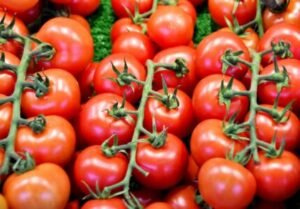
Dehydrated tomatoes offer an intense, sweet-tart flavor.
They can be used in pasta sauces, soups, salads, and sandwiches, or rehydrated and blended into sauces or spreads.
Onions:
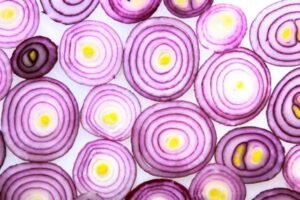
Dehydrated onions add savory, aromatic flavor to a wide range of dishes.
They can be used in soups, stews, casseroles, and sauces, or rehydrated and used as a topping for pizzas, salads, or sandwiches.
Carrots:

Dehydrated carrots provide a sweet, earthy flavor and vibrant color.
They can be used in soups, stews, casseroles, and salads, or rehydrated and enjoyed as a standalone snack or side dish.
Potatoes:

Dehydrated potatoes are versatile and convenient, offering a neutral flavor and smooth texture.
They can be rehydrated and used in dishes like mashed potatoes, soups, stews, or casseroles, or seasoned and baked into crispy potato chips.
Spinach:
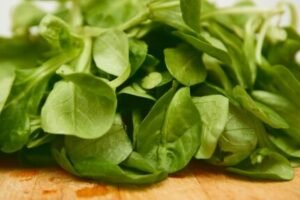
Dehydrated spinach adds a nutrient-rich boost to dishes. It can be used in soups, stews, casseroles, and sauces, or rehydrated and added to omelets, quiches, or pasta dishes.
Mushrooms:
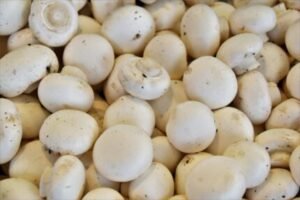
Dehydrated mushrooms have a rich, meaty flavor and add depth to dishes. They can be used in soups, stews, risottos, and pasta sauces, or rehydrated and enjoyed as a standalone side dish or topping.
Peas:
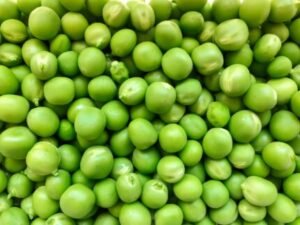
Dehydrated peas offer a sweet, fresh flavor and vibrant green color. They can be used in soups, stews, casseroles, and salads, or rehydrated and added to rice dishes, pasta salads, or stir-fries.
These are just a few examples of popular dehydrated vegetables, but there are many others to explore based on your preferences and culinary needs.
It’s essential to choose high-quality dehydrated vegetables and store them properly to maintain their flavor, nutrition, and shelf life.
Nutrient Retention
Dehydrated vegetables offer a convenient way to preserve produce while maintaining nutritional value. Understanding the factors affecting nutrient retention is crucial for assessing their health benefits.
Factors Influencing Nutrient Retention:
Dehydration Method
Different dehydration methods, such as air drying, sun drying, or using specialized dehydrators, can impact nutrient retention.
Low-temperature drying methods typically preserve more nutrients compared to high-heat methods.
Duration and Temperature
The duration and temperature of the drying process also play a significant role.
Longer drying times at lower temperatures generally result in better nutrient retention, particularly for heat-sensitive vitamins like vitamin C.
Pre-Treatment
Pre-treating vegetables before dehydration, such as blanching or steaming, can help retain nutrients by minimizing enzymatic activity and reducing nutrient loss during drying.
Storage Conditions
Proper storage conditions are essential for maintaining nutrient integrity.
Dehydrated vegetables should be stored in airtight containers in a cool, dry place away from light and moisture to prevent nutrient degradation over time.
Nutrients Retained in Dehydrated Vegetables
Vitamins
While some heat-sensitive vitamins like vitamin C may experience partial degradation during dehydration, many vitamins, including vitamin A, vitamin K, and various B vitamins, can still be retained in significant amounts.
Minerals
Dehydrated vegetables remain rich in essential minerals such as potassium, magnesium, calcium, iron, and zinc, which play vital roles in various physiological functions.
Antioxidants
Many antioxidants found in vegetables, such as carotenoids and flavonoids, are relatively stable during dehydration, contributing to the health-promoting properties of dehydrated vegetables.
Conclusion
Despite some nutrient loss during dehydration, properly processed and stored dehydrated vegetables can still offer substantial nutritional benefits.
Choosing appropriate dehydration methods, optimizing processing conditions, and ensuring proper storage are key to maximizing nutrient retention in dehydrated vegetables.
Does dehydrated vegetables lose nutrients?
Yes, dehydrated vegetables can experience some loss of nutrients during the dehydration process.
Factors such as heat, light, and oxygen exposure can contribute to nutrient degradation. Here are some key points to consider:
Heat Sensitivity:
Some vitamins, such as vitamin C and certain B vitamins, are sensitive to heat and can degrade when exposed to high temperatures during the dehydration process.
While dehydration typically involves lower temperatures compared to other food preservation methods like canning, there may still be some loss of these heat-sensitive nutrients.
Oxygen Exposure:
Exposure to oxygen during the dehydration process and subsequent storage can lead to oxidation, which may cause some degradation of nutrients, particularly vitamins and antioxidants.
Light Sensitivity:
Some nutrients, such as certain vitamins and chlorophyll, are sensitive to light. Proper storage in opaque or dark containers can help minimize light exposure and preserve nutrient integrity.
Mineral Retention:
While some vitamins may experience degradation during dehydration, many minerals are relatively stable and can be retained well in dehydrated vegetables.
Minerals such as potassium, magnesium, calcium, and iron are less affected by the dehydration process.
Storage Conditions:
Proper storage of dehydrated vegetables is crucial for maintaining nutrient integrity. Storing them in airtight containers in a cool, dry place away from light and moisture can help minimize nutrient loss over time.
While some loss of nutrients may occur during the dehydration process and storage, dehydrated vegetables still retain a significant portion of their nutritional value.
They can be a convenient and nutritious option for adding vegetables to your diet, especially when fresh produce is not readily available.
What vegetables can be dehydrated?
A wide variety of vegetables can be dehydrated, allowing you to preserve their flavors and nutrients for long-term storage.
Here’s a list of common vegetables that are suitable for dehydration:
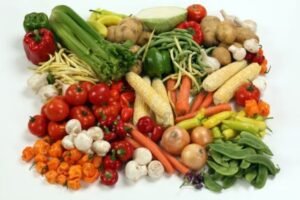
Root Vegetables:
- Carrots
- Potatoes
- Sweet potatoes
- Beets
- Turnips
- Radishes
Leafy Greens:
- Spinach
- Kale
- Collard greens
- Swiss chard
- Cabbage
Cruciferous Vegetables:
- Broccoli
- Cauliflower
- Brussels sprouts
Alliums (Onion Family):
- Onions
- Garlic
- Shallots
- Leeks
Nightshade Vegetables:
- Tomatoes
- Peppers (bell peppers, chili peppers)
- Eggplant
Legumes:
- Green beans
- Peas
- Snap peas
Squash and Pumpkins:
- Zucchini
- Butternut squash
- Pumpkin
Mushrooms:
- Button mushrooms
- Shiitake mushrooms
- Portobello mushrooms
Cucumbers and Gourds:
- Cucumbers (for making cucumber chips)
- Zucchini (for making zucchini chips)
- Squash
Herbs and Aromatics:
- Parsley
- Basil
- Thyme
- Oregano
- Rosemary
Other Vegetables:
- Corn (for making corn kernels)
- Peppers (jalapeños, poblano peppers)
- Asparagus
- Okra
These are just a few examples of vegetables that can be dehydrated.
The dehydration process can help preserve the flavors, textures, and nutrients of these vegetables, making them convenient for storage and use in various recipes.
Experimenting with different vegetables can add diversity and nutrition to your diet while allowing you to enjoy seasonal produce year-round.
How do you store dehydrated vegetables?
Storing dehydrated vegetables properly is essential to maintain their quality, flavor, and nutritional value over time. Here are some guidelines for storing dehydrated vegetables:

Cool, Dry Location:
Store dehydrated vegetables in a cool, dry place away from direct sunlight, moisture, and heat sources. A pantry, cupboard, or cellar is ideal for storing dehydrated vegetables.
Airtight Containers:
Transfer dehydrated vegetables to airtight containers or resealable bags to prevent exposure to air, which can lead to moisture absorption and degradation of quality.
Mason jars, vacuum-sealed bags, or food-grade plastic containers with tight-fitting lids are suitable options.
Oxygen Absorbers:
Consider using oxygen absorbers in containers to help extend the shelf life of dehydrated vegetables by minimizing oxidation and reducing the risk of spoilage.
Oxygen absorbers are small packets containing iron powder that absorb oxygen from the air.
Labeling and Dating:
Label containers with the contents and date of dehydration to keep track of storage times and ensure proper rotation of stock.
This helps prevent waste and ensures you use the oldest batches first.
Avoid Moisture:
Moisture is the enemy of dehydrated vegetables, as it can lead to mold growth and spoilage.
Ensure that containers are completely dry before adding dehydrated vegetables, and avoid storing them in areas prone to humidity, such as near sinks or in basements prone to flooding.
Avoid Light Exposure:
Keep containers of dehydrated vegetables away from direct sunlight or fluorescent lighting, as light can degrade the quality of the vegetables and cause nutrient loss over time.
Freezer Storage (Optional):
While not necessary for short-term storage, dehydrated vegetables can be stored in the freezer for longer-term preservation.
Place the sealed containers or bags in the freezer to prevent moisture absorption and extend the shelf life of the vegetables.
By following these storage guidelines, you can ensure that your dehydrated vegetables remain fresh, flavorful, and nutritious for an extended period, allowing you to enjoy them in various recipes year-round.
Medically reviewed by Dr. Ramesh Gaddam, M.D.

General Physician, Diabetologist, and Critical Care Specialist.
Related
Discover more from Health Build-Up
Subscribe to get the latest posts sent to your email.
